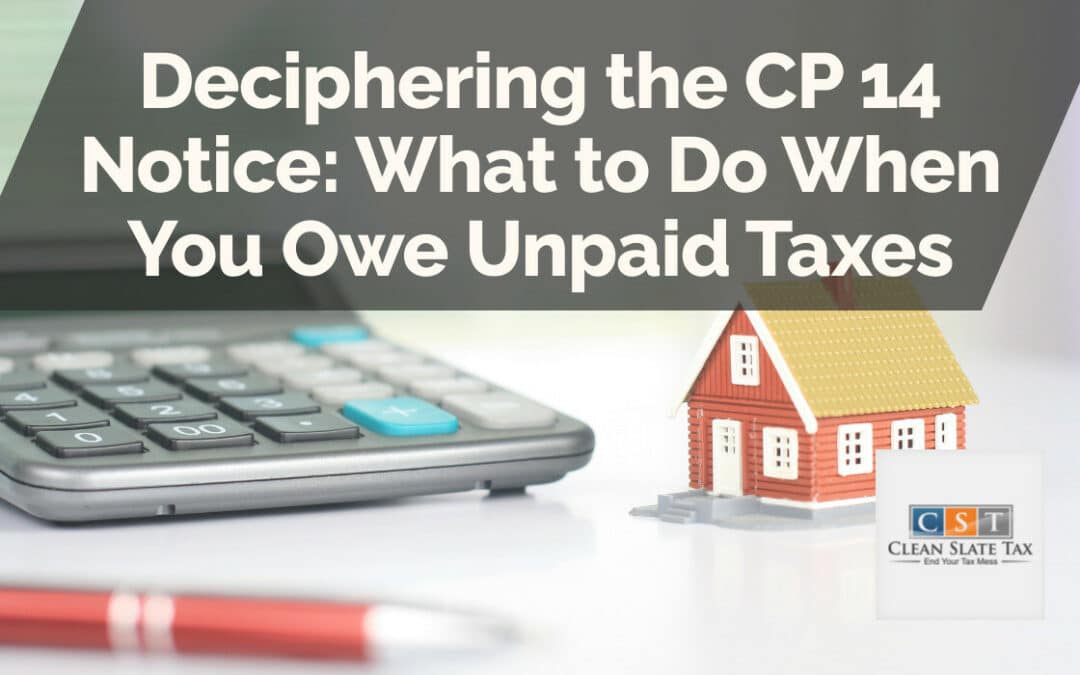The Internal Revenue Service (IRS) imparts crucial information to taxpayers using numerous coded documents, one of which is the ‘CP 14 Notice’. Emanating from the IRS, this critical notification is synonymous with the anxiety of unpaid taxes. Many taxpayers dread the CP 14 Notice, but understanding its contents and knowing how to respond to it effectively can alleviate much of the anxiety associated with it. This article aims to provide valuable insights into this notice and offer practical strategies to handle the situation.
What is a CP 14 Notice?
A CP 14 notice is a document the IRS sends to taxpayers warning them of owed taxes. It’s the first notice taxpayers receive if they have unpaid taxes. The IRS uses this notice to request payment for the outstanding amount. It’s not an audit notice, but it shouldn’t be ignored because it could lead to more significant issues down the line.
Understanding the Content of a CP 14 Notice
A CP 14 notice typically includes the amount of tax you owe, any penalties incurred, and the interest accrued until the date of the notice. The document also provides detailed instructions regarding your payment options, usually specifying a deadline for settling the debt to avoid accruing additional penalties or interest.
How to Respond to a CP 14 Notice
A CP 14 notice demands immediate attention. Ignoring it can lead to a more severe collection action from the IRS. However, there are several ways you can respond:
- Pay in full: If you can afford it, paying the total amount owed the safest resolution method.
- Request a payment plan: If you can’t pay in full, you may request an installment agreement to fulfill the debt over time.
- Challenge the IRS’s determination: If you believe you do not owe the tax, you have the right to dispute the IRS’s determination. You must provide specific documents or information indicating why you disagree.
Frequently Asked Questions about a CP 14 Notice
What happens if I ignore a CP 14 notice?
Ignoring a CP 14 notice invites escalating enforcement actions from the IRS, such as the issuance of a Notice of Federal Tax Lien or a Notice of Intent to Levy.
Can I get relief from penalties?
Yes, the IRS offers penalty relief for some taxpayers. The agency will usually approve your request if you didn’t previously have to file a return or you’ve no penalties for the preceding three tax years.
Does receiving a CP 14 notice mean I’m being audited?
No, a CP 14 is not an audit notice. It’s merely a bill for unpaid taxes.
Ultimately, while receiving a CP 14 notice is a serious matter, it is manageable with the right approach. Understanding what CP 14 notice is, what it entails, and how to respond effectively is the key to resolving your tax debts and avoiding major issues with the IRS.





